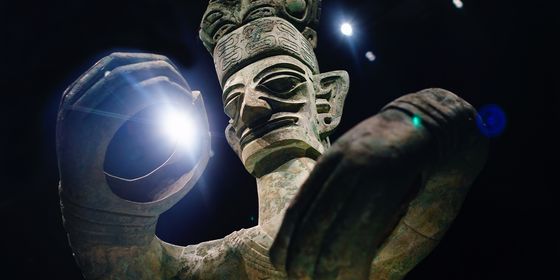It took a lot of moxie to tell an Emperor he’s doing a bad job, but these few officials survived it
Free speech is supposed to be a basic right of every citizen, but sadly, it’s still a luxury for many.
In ancient China, exercising free speech was even riskier, especially when dealing with an all-powerful emperor, who was also a Son of Heaven–a living god. Due to infamous literary inquisitions throughout history, Chinese people, especially government officials, were acutely aware of the price they might pay for their words: In imperial China, it was a crime that could cost you your life. Most courtiers just stayed silent but a rare breed of officials was willing to die for their principles.
Occasionally, they managed to hold onto their lives.
Luo Binwang (骆宾王) was one of those lucky few. One of the outstanding poets in early Tang (618 – 907) history, Luo was known not only for his verse, but also a sharply worded article criticizing Wu Zetian (武则天) , the only female emperor in Chinese history.
Wu took over the throne after the death of her husband, Emperor Gaozong, and the deposition of her two sons, Emperor Zhongzong and Emperor Ruizong. Many officials, including Luo, could not accept Wu’s reign, and instead backed Li Jingye, the Duke of Ying, as their leader and rose against Wu, claiming their goal was Zhongzong’s restoration. Luo, in charge of the resistance forces’ correspondence, wrote the declaration against Emperor Wu.
He criticized Wu’s background, behavior and private life, though to modern eyes, much of what Luo claims comes off as character assassination, with some rather gendered attacks:
The wrongfully ruling Lady Wu has a disagreeable temper and a dishonorable ancestry.
伪临朝武氏者,性非和顺,地实寒微。
She secretly hid the fact that she had sexual relations with Emperor Taizong to treacherously receive the emperor [Gaozong, Taizong’s son]’s love.
潜隐先帝之私,阴图后房之嬖.
She has a heart similar to a snake and a lizard, and a disposition similar to a wolf. She is close to insidious individuals and murders the faithful and the good. She killed her sister, slaughtered her brothers, murdered her emperor, and poisoned her mother. Both gods and human hate her, and both heaven and earth cannot allow her to exist.
加以虺蜴为心,豺狼成性,近狎邪僻,残害忠良,杀姊屠兄,弑君鸩母。人神之所同嫉,天地之所不容。
Surprisingly, Wu demonstrated admirable restraint after reading, and was impressed by Luo’s literary talent, lamenting, “How could the chancellor lose this man’s service?”(宰相安得失此人?)
Male emperors could also demonstrate surprising mercy. Su Zhe (苏辙), a great politician and essayist of the Song dynasty (960 – 1279), risked his official career to criticize ruling Emperor Renzong (宋仁宗) when he took the keju, the imperial exam which selected government officials. When Su was asked for some political comments, he decided to give some straightforward advice to the emperor:
In recent years, nearly one thousand concubines have been collected in the palace. Your majesty has been so entertained by the singing, dancing and drinking that you ignored the state affairs and never learned statecraft from officials.
陛下近岁以来,宫中贵妃已至千数,歌舞饮酒,欢乐失节,坐朝不闻谘议,便殿无所顾问。
Su mentioned several dilettante emperors from history, suggesting that Emperor Renzong was behaving in a similar manner.
His essay enraged many, and some suggested Su should be deposed or even exiled. Even Su himself felt that he was very likely to fail the exam. But the emperor didn’t blame him at all. Instead, he appreciated Su’s article and said that Su’s talent was worthy of a prime minister. Su passed the exam and became an official.
But in Chinese history, perhaps the Ming (1368 – 1644) official Hai Rui (海瑞) is best remembered as a model of honesty and integrity.
Hai took the keju but was unsuccessful, and his career began with only a humble position in Fujian. He gained a reputation for his uncompromising adherence to upright morality and fairness. In 1565, he submitted a memorial strongly criticizing the Jiajing Emperor for the neglect of his duties and bringing disaster to the country. Hai listed the emperor’s misdeeds, including pursuing eternal life, levying heavy taxes and completely ignoring his own son for years (a big no-no, according to many superstitions): “People under heaven have been looking down upon your majesty for a long time. Officials in the government all know it!” (天下之人不直陛下久矣,内外臣工之所知也。)
This crossed the line. After the memorial was submitted, Hai bought himself a coffin, to show that he was prepared for death. The emperor was furious and sent Hai to jail, but also felt that the article was sincere and moving, so decided not to kill him immediately. Being a capricious type, Emperor Jiajing later got angry and sentenced Hai to death. But before the execution could be carried out, the emperor died and since nobody really wanted to go through with the execution, somehow Hai was released.
Cover image from btime.com












